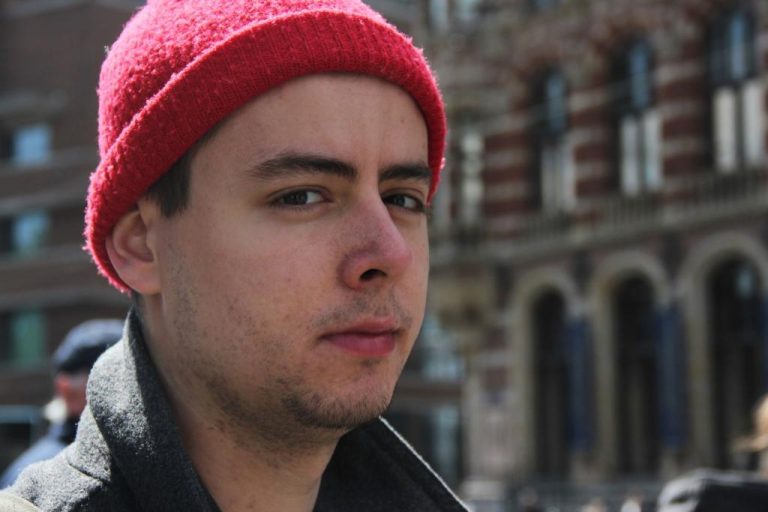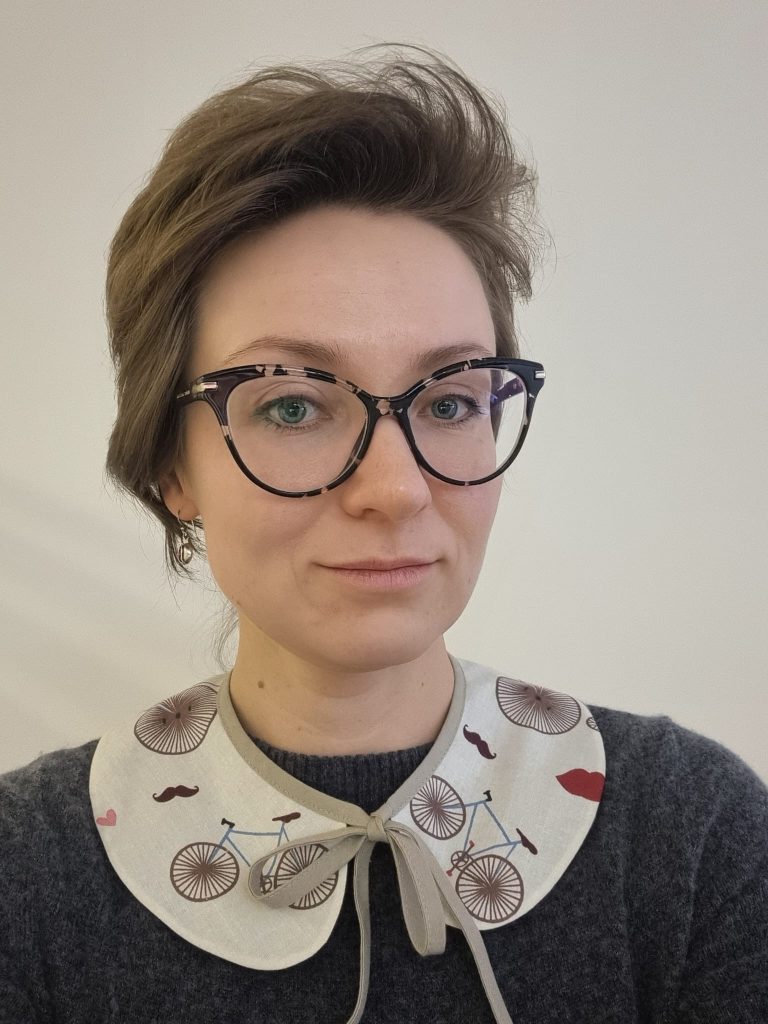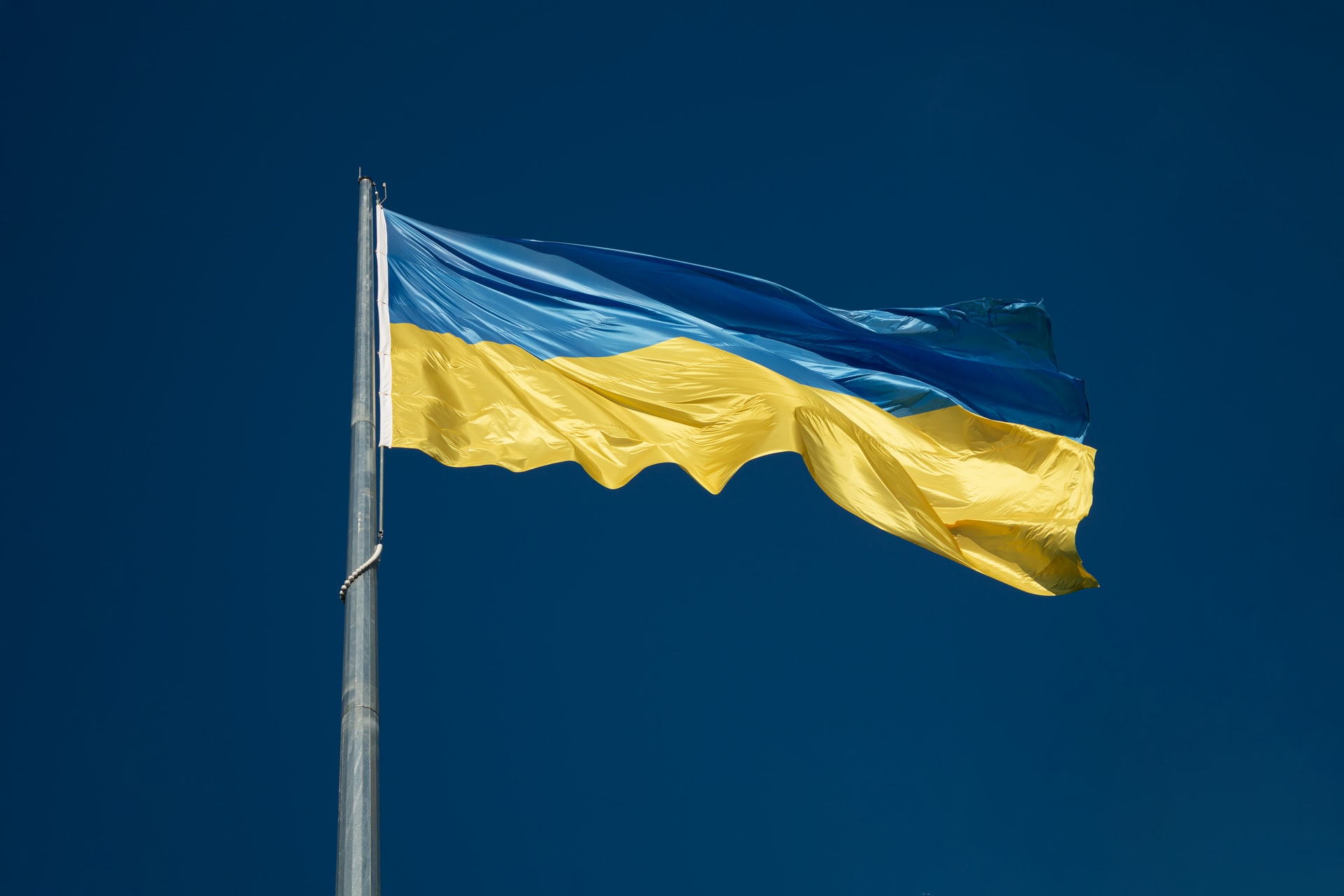Ukrainian academics at TU Delft are worried about the conflict between Russia and Ukraine. They are in close contact with their families and are glued to the news.
(Photo: Yehor Milohrodskyi/Unsplash)
It is frightening times for the people in Ukraine and for Ukrainian citizens abroad, some of whom work and study at TU Delft. Delta spoke to two of them.
Dmytro Kolenov is a postdoc in the optics research group at the Faculty of Applied Physics.


It was five in the morning when Dr Dmytro Kolenov received a phone call from his parents to say that war had broken out. The area where they live is close to the border with Russia. Kolenov is extremely worried. “About my parents, but also about my nephews and nieces, friends and old school friends. My parents and I call each other every hour. They cannot flee anymore. The airports were closed on Wednesday evening and a few have now been bombed. Only the people with their own means of transport can flee.”
But where would they flee to, wonder Kolenov and his parents. Poland or Romania perhaps, but apart from that they have nowhere to go so his parents are staying put. Kolenov fears the worst. “Wars should be fought between soldiers, but I am afraid that there will also be civilian casualties. The only thing that the citizens can do now is find an air-raid shelter during the bombing.”
Kolenov had already suspected that there would be a full scale war, but he did not expect it to happen so quickly. “The current analyses show that the Russian army had entered Kyiv on Thursday evening. This is really fast. I am happy that the European Union is imposing sanctions. The more the better. Unfortunately, they do not seem to be hurting Putin.” Kolenov hopes that the EU will set up humanitarian help quickly and that European countries will be prepared to help Ukrainian refugees. “My wife and I are glued to the news. It’s all we can do at the moment.”


From their home, Dr Natalia Kadenko’s parents hear bombs falling on an airstrip close to Kyiv. “My mother phoned me at five thirty this morning to tell me that war had broken out,” says Kadenko, postdoc and cybersecurity expert at the Faculty of Technology, Policy and Management. “My parents have not left their home. They fear for their lives. But my mother is more worried about the prospect of living under Russian occupation than she is afraid of bombing.”
Kadenko’s father comes from the Donetsk region. Part of the region, including its city of the same name, has been governed by the separatist and Russia backed People’s Republic of Donetsk since 2014. The conflict with Russia has thus been a part of their lives for years. “We know a lot of people in that region and for years we have heard stories of disinformation that is being spread there. That Russia is cranking up the war does not surprise me at all. But that it is happening so fast and on this scale does.”
The postdoc is following the news from Ukraine closely. During the conversation she receives an app from her mother. “Good grief, Russian soldiers are now walking around the Chernobyl site,” she reads on her phone. “I came to TU Delft for some distraction and to talk to people. It is important, even if it hurts. I hope that people in Western Europe realise that their safety is also under threat.”
It is unclear when Kadenko can return to Ukraine. She normally visits family regularly – insofar as Covid permits. “I do not think that I would be safe there if Russia is in control. Apart from being a cybersecurity researcher, I am also a political scientist and have clear opinions.”
Annebelle de Bruijn en Tomas van Dijk



Comments are closed.